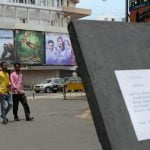
Dilip Pendse’s life could have been all so different. The former managing director of Tata Finance Ltd (TFL), who killed himself at his Mumbai office on Wednesday, was once a financial genius, a protégé of Ratan Tata who was given the task of building the Tata group’s non-banking financial services firm Tata Finance in 1996.
That he blew the opportunity and ended his glittering 22-year career with Tata group in disgrace, is the story of a con-man who may have got his comeuppance but not before he had plunged his company and his group into chaos. His personal misdemeanours were many—cheating, forgery, criminal conspiracy and misappropriation of funds were the stated charges along with criminal breach of trust, falsification of accounts — but it was the misuse of his position to dupe small investors and the impact that such actions had in the loss of faith in NBFCs that was his biggest crime.
In the process, he brought to the fore the need for governance standards as well as regulatory oversight of the financial services sector at a time when it was on a tear, threatening to upend the banking system itself by its speed of response as well as its many innovations.
Mumbai’s financial world of 2001 was peopled with hustlers, stock brokers busy fixing the markets, and company executives playing them in collusion. It was an altogether dirty business and Pendse used his position as head of a trusted brand to conduct “illegal carry forward transactions” according to the complaint filed with capital market regulator Securities and Exchange Board of India (Sebi) by the company against him.
Pendse’s transgressions first came to light in April 2001 when Sebi asked TFL to clarify allegations of huge losses amounting to Rs70 crore made by one of its subsidiaries, Nishkalp Investment & Trading Co., in its investments in the secondary market at a time when the company was preparing for a large rights issue.
By the time TFL filed an FIR against Pendse, the losses had mounted and the fraud that had been played out by Pendse and five others was all too evident. Using their position, these men set up a subsidiary, Nishkalp, which deployed funds from Tata Finance for speculative trading in scrips like Global Telesystem and Vakranagee Software. Since Nishkalp was controlled by Pendse, all profits from these illegal transactions would be pocketed by him. Unfortunately that’s not how it panned out and the massive carry forward transactions went wrong leading to huge losses which ultimately Tata Sons had to take care of.
He was finally arrested in February 2003 by police in New Delhi following a complaint filed by Inshaallah Investment Ltd, a TFL subsidiary, alleging that the former managing director had issued cheques worth Rs 2 crore to brokers for payment of personal transactions of a former TFL director.
But if it had been an isolated case of an executive gone rogue, the legal action that followed may have been enough. Sadly it also threw up other murky details including Pendse’s involvement with Ketan Parikh, reigning Bombay bull of the day and later convicted for market manipulation and debarred from trading. Many of the speculative investments made by Nishkalp were in K-10 stocks, so named since Parekh taking advantage of their low liquidity would drive up their prices. The list included companies like Amitabh Bachchan Corp., Himachal Futuristic Communication, Mukta Arts, GTL, Zee Telefilms, PentaMedia Graphics, Crest Communications and Aftek Infosys.
That KP trading was in itself a blot on the regulatory environment since less than 10 years ago he had been named in the Harshad Mehta stock scam. By 2001, he was engineering his own little stock market storm and men like Pendse were minor players in it.
At TFL though, Pendse’s deeds also brought up the vexed issue of corporate oversight with group heavyweights Freddie Mehta who was chairman of Tata Finance and JE Talaulicar who was chairman of Nishkalp being dragged into the affair. The issue was whether they had known of the going-ons and if not, did that mean they were not doing their jobs. Talaulicar, who was on the board of directors of Tata Sons, was subsequently charged with insider trading by Sebi.
If that wasn’t enough, audit firm AF Ferguson which had been given the task of investigating the business by the Tatas, found itself covered with some of the muck, when one of its senior partners, YM Kale, was forced to leave the firm after his role in preparing the internal report for TFL was questioned by the group.
In June 2016, Sebi finally barred Pendse and three other entities from the capital market for manipulations at the time of the firm’s right issue in 2001 stating in its order, “Considering the admitted mis-statement made in the letter of offer pertaining to the rights issue regarding the accounts of Nishkalp, it can be concluded that the affairs of the companies were mismanaged to commit fraud on the investors.”
In the 15 years since the Tata Finance scam broke, there has been substantial regulatory tightening. But it would be naïve to imagine that there aren’t any more rogue traders and corrupt executives who can manipulate the markets. Only this time, the price may be very, very steep.
[“source-hindustantimes”]




